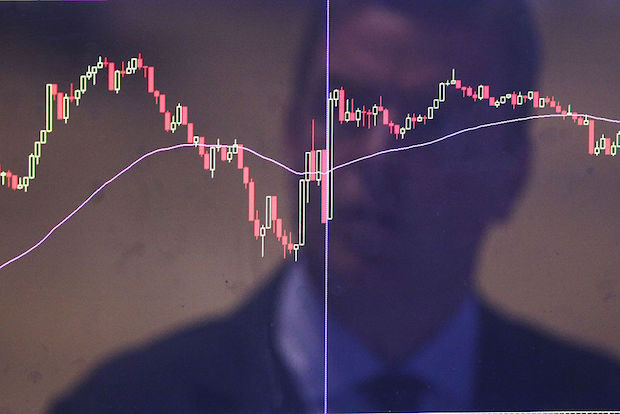The markets are volatile, well at least more volatile than they have been. The FTSE 100 index has already had two days this year where it has moved by more than 2%, in 2017 it only did that once, in the entire year. This has a tendency to make investors cautious and as a result potentially miss out on the benefits of that volatility.
History suggests that near term volatility caused by political or economic uncertainty and sentiment has little long term effect on the stock market. The key here is that investing is a long term activity and if you take a long term view you can ignore short term volatility. Of course, this approach comes unstuck if you become a forced seller for any reason at a point where the market has taken a downturn. This can be addressed by ensuring enough assets likely to be required in the short term are held in less volatile instruments, by investing regularly and by holding a diversified portfolio.
However, had you invested at the peak of the market in late 2007 before the last financial crash, the market is now above that level – and of course you would have received dividend income along the way. Had you invested at the peak of the 2000 dotcom boom, by 2007 the market had recovered to those levels and by 2015 had again surpassed the levels achieved back at the end of 1999.
The volatility and any market ‘correction’ can also provide a buying opportunity. The concept known as ‘pound cost averaging’ which applies where you invest a little and often in to the market means that when prices fall your regular investment can buy more shares (or units if investing in a fund). This enables you to take advantage of volatility in circumstances where the market rises over time, though it may suffer a fall in the near term.
So where investors take a long term view, as you should when exposing your savings to market risk, the short term volatility rather than causing paralysis and fear can be an opportunity and should be looked through into the long term.
Brexit’s unexpected consequences
It is possible Brexit may have unexpected consequences on your investments. When the referendum was held it was widely assumed a ‘no’ vote would result in the market falling sharply. Indeed that was what happened – but only very briefly immediately the morning after. The market soon recovered and rose afterwards and throughout 2017. Indeed had you invested in the FTSE 100 in the immediate aftermath of the vote that following morning the market has risen nearly 20% since.
This may seem counterintuitive. What it largely reflects is the fact that the FTSE 100 is an international market and the companies on it earn a significant amount overseas. The economic forecasters also predicted a fall in Sterling. This also happened and acted as a counterbalance on the stock market. Those foreign revenues were worth more in Sterling terms and this would give companies the scope to earn more profits and pay more dividends in Sterling – the share prices rose as a consequence.
If there is ‘no deal’ it may be expected that Sterling will further fall. This may be exacerbated by the Bank of England cutting rates to support the domestic economy. This will further boost those foreign revenues, earnings and returns in Sterling for investors. Share prices of those international companies may again rise once the impact of these currency fluctuations is digested.
Conversely, if the Prime Minister crafts a deal which gets through Parliament, the collective sigh of relief may be expected to result in markets rising. This may happen, not least because investors currently sitting tight on cash may be tempted into the market as some of the uncertainty lifts. However, Sterling will also likely rise sharply. The Bank of England may be expected to raise interest rates more quickly if the economy is seen to get a boost from a return of consumer confidence. That will have a dampening impact on all those foreign earnings and thus may limit the scope for Sterling profits and dividends to grow.
The reaction of the markets immediately after the referendum, and how they have held up even in the face of political uncertainty and a hung parliament, is a good example of sentiment having initially driven the markets down but the rational impact of currency movements on earnings and dividends then driving actual prices for companies with large amounts of foreign earnings higher. It also demonstrates that investors need to have a good understanding of what they are investing in. A fund or investment that tracks the FTSE 100 is not tracking UK Plc, indeed it is largely made up of international mining, oil & gas and banking companies. The above arguments may be a bit different for the FTSE 250 which more heavily reflects the fortunes of domestic companies serving more domestic markets.
I would therefore conclude that short term volatility of the sort the Brexit machinations is creating, should not be feared. In the long term it will be a small wobble on the market charts. Personal investors should look to the long term and invest a little and often which actually enables that short term volatility to be turned to their advantage.
Richard Stone is Chief Executive of The Share Centre






Comments